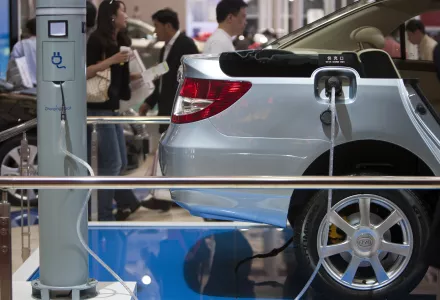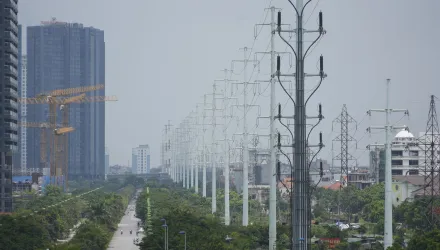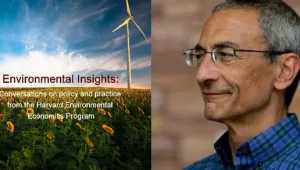
Abstract
Electric vehicles maintain the fastest development in China and undertake the responsibility of optimizing energy consumption and carbon emission in the transportation field. However, from the entire life cycle point of view, although electric vehicles have a certain degree of energy consumption and carbon emission reduction in the use phase, they cause extra energy consumption and carbon emission in the manufacturing phase, which weakens the due environmental benefits to some extent. The recycling of electric vehicles can effectively address the issue and indirectly reduce the energy consumption and carbon emission in the manufacturing phase. China is setting up the recycling system and strengthening regulation force to achieve proper energy consumption and carbon emission reduction benefits of electric vehicles. Under the current electric vehicle recycling technologies, China can reduce about 34% of carbon emission in electric vehicle manufacturing phase. Traction battery recycling is even more important. Taking NiCoMn lithium-ion battery as an example, about 40% of carbon emission in manufacturing phase can be reduced by adopting appropriate recycling technology. With the rapid development of battery recycling technology, the proportion will continue to rise. If China would like to obtain environmental benefits sufficiently, recycling enterprises should be encouraged to adopt advanced recycling technology and the government should adopt more strict supervision measures. China has followed the examples of Europe and the U.S. to set up the extended producer responsibility recycling system. Due to late start of China, the benefits have not been reflected yet.
Qiao, Qinyu, Fuquan Zhao, Zongwei Liu and Han Hao. “Recycling-Based Reduction of Energy Consumption and Carbon Emission of China's Electric Vehicles: Overview and Policy Analysis.” Technical Paper 2018-01-0659, SAE International, 2018.
The full text of this publication is available via SAE International.





